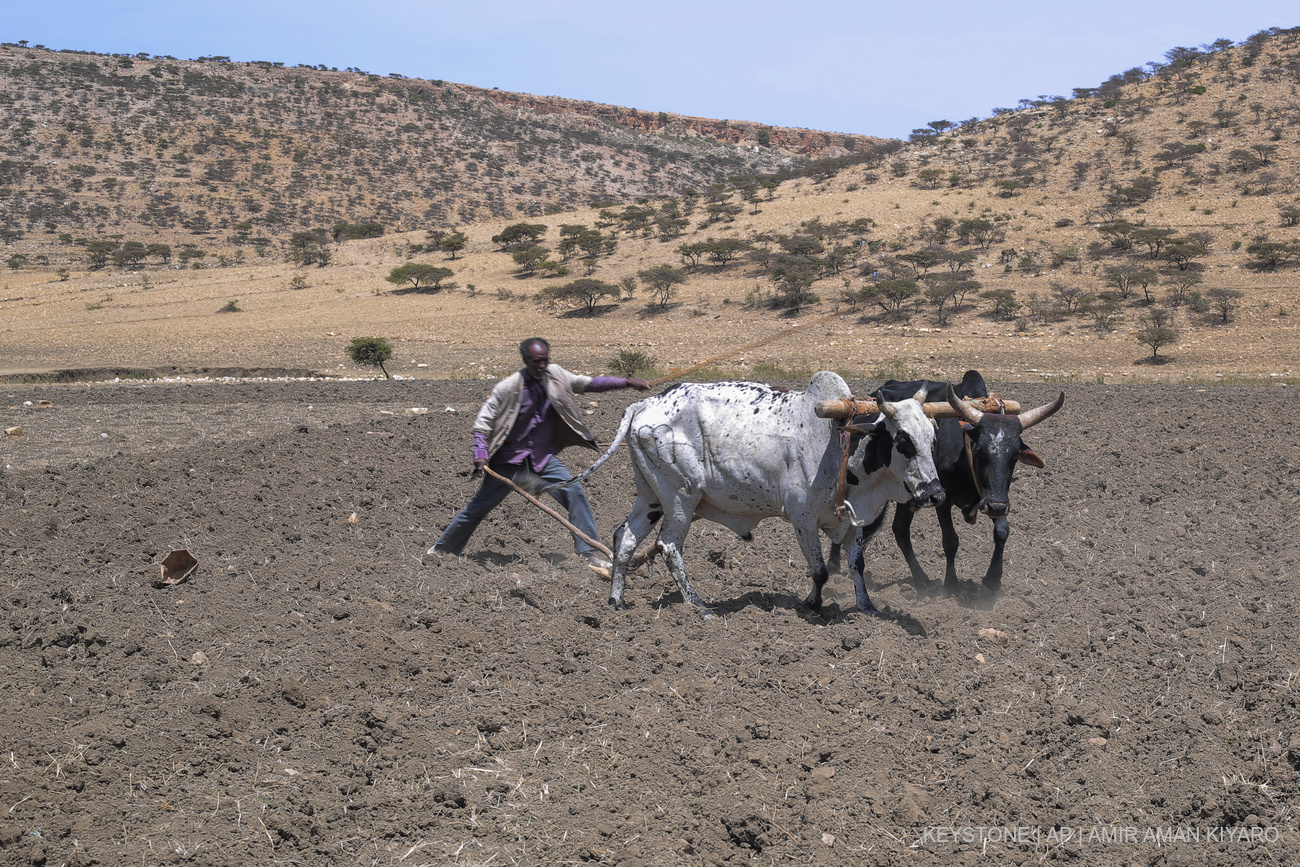UN needs millions for aid in Ethiopia

With the hunger crisis in Africa not only affecting Sudan, but also neighbouring Ethiopia, the United Nations (UN) wants to support 15.5 million people there this year. However, there is a lack of funds.
At a donor conference in Geneva on Tuesday, the UN campaigned for the funding of a requirement plan. Less than 5% of the $3.24 billion (CHF2.96 billion) needed for this year has been raised so far, the UN emergency aid office OCHA reported.
The UN hoped that governments at the conference would raise a third of the sum needed for the most pressing aid over the next five months. On Monday in Paris, a donor conference for Sudan, which has been devastated by a civil war for the last year, raised €2 billion (CHF1.94 billion) in aid.
+Switzerland promises millions to help fight poverty and climate change in Africa
In addition to conflicts that repeatedly displace people, Ethiopia also suffers from droughts and floods, and around 4.5 million people are displaced in the country. According to the UN, many people in parts of the Afar, Ahmara and Tigray regions are severely malnourished and fields, water supplies, clinics and schools have been destroyed by years of conflict.
+Switzerland renews contribution to climate fund for developing countries
Ethiopia’s Foreign Minister Taye Atske Selassie said that dealing with the consequences of climate change was a global responsibility. The government is trying to boost food production through peace and development initiatives to protect the country from hunger crises.
Translated from German by DeepL/kp
This news story has been written and carefully fact-checked by an external editorial team. At SWI swissinfo.ch we select the most relevant news for an international audience and use automatic translation tools such as DeepL to translate it into English. Providing you with automatically translated news gives us the time to write more in-depth articles.
If you want to know more about how we work, have a look here, and if you have feedback on this news story please write to english@swissinfo.ch.

In compliance with the JTI standards
More: SWI swissinfo.ch certified by the Journalism Trust Initiative
You can find an overview of ongoing debates with our journalists here. Please join us!
If you want to start a conversation about a topic raised in this article or want to report factual errors, email us at english@swissinfo.ch.